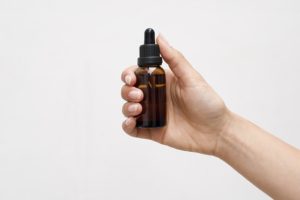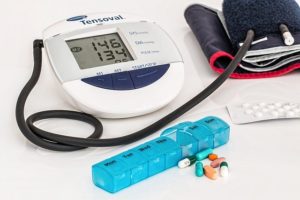Ginseng is derived from a plant that was originally discovered in China 5000 years ago. Ginseng is derived from a plant that was originally discovered in China over 5000 years ago. The Chinese emperor Shen Nung, who ruled ancient China approximately 3000 BC, believed that Ginseng was effective for the treatment of erectile dysfunction.
Emperor Shen Nung was considered to be the father of Chinese medicine. He is credited with cataloging over 350 medicinal plants. He believed that ginseng rejuvenated overall health, alleviate erectile dysfunction, and improved sexual appetite.
Ginseng currently enjoys widespread use throughout the world. It is estimated that over 6 million Americans take ginseng for the treatment of erectile dysfunction. It is used for the treatment of:
- Cardiovascular diseases
- Cerebrovascular diseases
- Diabetes
- Pulmonary disease
- Erectile dysfunction
Types of Ginseng
 The three main types of ginseng include American Ginseng, Siberian Ginseng, and Asian Ginseng. Asian Ginseng is grown primarily in China and in Korea. There are two types of Asian Ginseng: white and red. Red Ginseng is considered to be the most potent form of ginseng.
The three main types of ginseng include American Ginseng, Siberian Ginseng, and Asian Ginseng. Asian Ginseng is grown primarily in China and in Korea. There are two types of Asian Ginseng: white and red. Red Ginseng is considered to be the most potent form of ginseng.
Red Ginseng is prepared after aging the ginseng plant for a minimum of 6 years. The plant is steamed with the skin intact for 10 hours. The plant is then dried. This process confers a red color to the ginseng plant.
Active Ingredients
Ginsenosides are the active ingredients of ginseng. At least 10 different ginsenosides have been identified. Ginsenosides belong to a class of molecules called saponins. Saponins are large sugar molecules. When saponins are dissolved in water and shaken, the solution forms a foam that resembles soap.
How Does Ginseng Work?
A number of different mechanisms of action have been attributed to ginseng. The evidence for some of these mechanisms is strong and the evidence for other mechanisms is relatively weak. More research into the mechanism of action of ginseng needs to be performed.
Strong Evidence — Ginseng Increases Nitrous Oxide Levels
 Ginseng increases the production of nitrous oxide in the penis. Nitrous oxide is the most important chemical messenger of the erection mechanism. Nitrous oxide has two main functions that lead to an erection.
Ginseng increases the production of nitrous oxide in the penis. Nitrous oxide is the most important chemical messenger of the erection mechanism. Nitrous oxide has two main functions that lead to an erection.
First, nitrous oxide dilates the artery to the penis. This allows the penis to fill with blood during the erection. The second function of nitrous oxide is that it causes relaxation of the smooth muscle in the corpora cavernosa of the penis.
The corpora cavernosa is the erectile body that fills with blood during the erection. As the corpora fill with blood, the veins draining the corpora are occluded. This completes the erection process.
Moderate Evidence — Ginseng Reduces Glucose Levels in Type 2 Diabetics
Studies were performed on laboratory rats who were fed a high-fat diet to simulate type 2 diabetes. These diabetic rats were then treated with ginseng and with a placebo. Blood glucose levels were lower in the ginseng-treated rats as compared with the placebo group.
Weak Evidence — Ginseng Is an Anti-Oxidant
There is some evidence that ginseng works as an antioxidant. Too much oxidation, or “oxidative stress”, can lead to the formation of free radicals. Free radicals are highly reactive molecules that can damage tissue.
Free radicals can damage the inside lumen of blood vessels which can lead to the formation of atherosclerotic plaque. Studies suggest that ginseng “scavenges” or eliminates free radicals and prevents tissue damage from occurring.
Weak Evidence — Ginseng Increases Dopamine Levels in the Brain
Ginseng is also purported to increase dopamine levels in the brain. Dopamine is a neurotransmitter. Neurotransmitters are chemical messengers that allow brain cells to communicate with each other. The effects of ginseng upon dopamine levels in the brain may lead to an increase in sex drive and sexual performance.
Weak Evidence — Ginseng Boosts the Immune System
Studies suggest that ginseng boosts the immune system by specifically increasing cell-mediated immunity. Although this does not directly impact sexual function, improved immunity may improve overall well–being. This may indirectly improve sexual performance.
Best Studies of Ginseng for the Treatment of Erectile Dysfunction
 There have been 7 randomized controlled studies of the efficacy of ginseng for the treatment of ED. All 7 studies involved randomizing patients to either a ginseng treatment group or to a group that received a placebo.
There have been 7 randomized controlled studies of the efficacy of ginseng for the treatment of ED. All 7 studies involved randomizing patients to either a ginseng treatment group or to a group that received a placebo.
All 7 studies showed that ginseng effectively treated ED. These studies relied upon self-reporting by the patients utilizing the International Index of Erectile Function — IIEF — questionnaire.
In addition to these clinical studies, there have been several laboratory studies using the rat and the rabbit model. These studies have shown increases in pressure within the corpora cavernosa of the penis upon administration of ginseng. The corpora cavernosa are the penile erectile bodies that fill with blood during the erection. These animal studies provide additional evidence that ginseng stimulates the penile erection mechanism.
Side Effects
The side effects of ginseng using standard doses are usually mild. They include headache, GI upset, constipation, and diarrhea.
Ginseng overdose is rare. A severe overdose can result in cardia arrhythmias, psychiatric disturbances, and clotting deficiencies due to liver damage. Caution must be exercised when prescribing other medications with ginseng. The dosage of anticoagulants should be reduced when prescribed with ginseng. Finally, NSAIDs and aspirin should be avoided altogether if the patient is taking ginseng.
Conclusions
 The efficacy of herbal substances has been greatly exaggerated. In addition, good clinical studies of herbal supplements are rare. Despite these limitations, there are 7 randomized control studies that suggest that ginseng has a positive effect on erectile dysfunction.
The efficacy of herbal substances has been greatly exaggerated. In addition, good clinical studies of herbal supplements are rare. Despite these limitations, there are 7 randomized control studies that suggest that ginseng has a positive effect on erectile dysfunction.
Most of the studies that have been cited in this report are flawed from a scientific standpoint. Nevertheless, there is evidence that ginseng is moderately effective for the treatment of ED. This warrants additional rigorous clinical and laboratory studies.
Ginseng has been used for the treatment of ED for about the past 5000 years. Based on current research, ginseng can be used as a supplement to other treatments of ED. The evidence for the use of ginseng as a stand-alone treatment of ED is less compelling.
